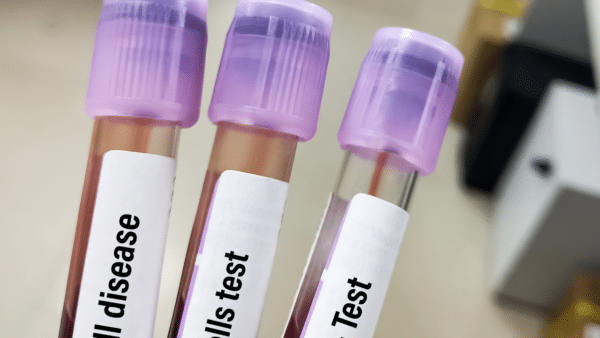We all know that “you are what you eat,” but wouldn’t it be amazing if science could give us a more precise roadmap to dietary nirvana? Enter the world of blood tests for diet – a concept that’s become increasingly popular. But before you dive headfirst into deciphering your blood’s cryptic messages, let’s clear the air. Blood tests are powerful tools, but they’re not magic wands that reveal your perfect diet in a single drop.
There’s a whirlwind of information (and sometimes misinformation) out there about these tests. We’ve all heard stories of people discovering hidden allergies or vitamin deficiencies through a simple blood draw. The truth? Blood tests can be incredibly insightful, but they’re just one piece of the puzzle.
Think of it like this: you’re building a magnificent health castle. Blood tests provide the foundation – essential information about your body’s internal workings. But to create a truly thriving structure, you also need the bricks (lifestyle factors), the mortar (genetics), and a skilled architect (a healthcare professional) to put it all together.

The Truth About Blood Tests for Diet
Let’s get down to the science. Blood tests for diet typically measure things like vitamin and mineral levels, hormone activity, and markers for inflammation. This intel can be incredibly valuable. For example, low Vitamin D levels might suggest increasing sun exposure or incorporating more fortified foods in your diet.
However, these tests can’t tell the whole story. Imagine two people with identical blood test results – one might be a fitness enthusiast who devours vegetables, while the other could be a couch potato with a penchant for pizza. Why the discrepancy? Because our bodies process and utilize nutrients differently based on a complex interplay of genetics, lifestyle habits, and even our gut microbiome.
The takeaway? Blood tests are a fantastic tool in a larger dietary assessment, but they shouldn’t be the sole decision-maker on your dinner plate.

Debunking Common Myths: Blood Tests Don’t Hold All the Answers
The world of health and wellness is rife with misconceptions, and blood tests for diet are no exception. Here are some common myths we need to bust:
Myth #1: Blood tests can create a one-size-fits-all perfect diet.
Wrong! Remember the intricate factors we mentioned earlier? While blood tests might reveal a vitamin B12 deficiency, a registered dietitian can tailor a personalized plan based on your food preferences, allergies, and overall health goals.
Myth #2: A single blood test will expose all your nutritional deficiencies.
Think of your body as a complex ecosystem. Nutritional deficiencies can be like hidden weeds – sometimes, it takes multiple tests or even other diagnostic methods to unearth them completely.
Myth #3: Blood tests for diet are only for people with specific health conditions.
Not true! Whether you’re a fitness fanatic or simply curious about optimizing your health through food, blood tests can offer valuable insights.
Stay tuned for the next section, where we’ll delve deeper into the exciting world of blood test panels for nutrition and wellness! If you are not sure blood tests are a good investment, you should also read our article on 12 Reasons to Schedule Regular Blood Tests.

Understanding Blood Test Panels – Navigating the Choices
Blood test panels are like pre-made toolkits for health professionals. They combine several individual tests into a single analysis, offering a broader picture of your nutritional status. Here are three popular options, each catering to different needs:
Nutrition and Wellness #1 Baseline Blood and Urine Test Panel:
This panel is like dipping your toes into the pool. It typically measures basic markers like:
- Complete Blood Count (CBC): Evaluates red and white blood cell counts, which can indicate potential iron deficiency or anemia.
- Comprehensive Metabolic Panel (CMP): Assesses organ function (liver, kidneys) and electrolyte balance.
- Iron and Total Iron Binding Capacity (TIBC): Provides a snapshot of iron stores in the body.
- Vitamin B12 and Folate: Checks for deficiencies in these crucial nutrients for energy production and cell health.
How it relates to diet: This panel helps establish baseline levels for key biomarkers. Think of it as your starting point. Based on the results, your healthcare provider might suggest dietary tweaks to optimize these levels, like incorporating more leafy greens (rich in folate) or iron-fortified cereals.
Nutrition and Wellness #2 Essential Blood and Urine Test Panel:
This panel goes a step further, often including everything in the #1 panel plus additional tests like:
- Lipid Panel: Measures cholesterol levels to assess heart health risk.
- Thyroid Panel: Evaluates thyroid function, which can impact metabolism and nutrient absorption.
Why it’s “essential”: This panel provides a more comprehensive overview of your overall health and nutritional status. Think of it like a progress report. It allows for a more informed approach to dietary planning, considering factors like cholesterol levels and potential thyroid issues.
Nutrition and Wellness #3 Extreme Blood and Urine Test Panel:
This panel is a deep dive for those seeking a comprehensive analysis. It might include everything in the previous panels, plus tests for:
- Advanced micronutrient levels: Measures a wider range of vitamins and minerals.
- Food sensitivity panels: Assess potential sensitivities to specific foods.
- Genetic testing: Explores potential genetic predispositions related to nutrient absorption or metabolism.
Importance: This panel is ideal for individuals with chronic health conditions, athletes seeking peak performance, or anyone wanting a truly in-depth look at their dietary needs. Think of it as the architect’s blueprints – offering a detailed roadmap for personalized dietary adjustments.
Remember, these are just examples, and the specific tests included in each panel can vary depending on the lab or healthcare provider. In the next section, we’ll explore how to choose the right panel for you and navigate the journey of translating blood test results into actionable dietary changes.

Making Blood Test Results Work for You – A Roadmap to Dietary Action
So, you’ve taken the plunge and gotten a blood test panel. The results are back, filled with numbers and medical jargon. Now what? Here’s how to navigate this information and use it to make informed dietary decisions:
Choosing the Right Panel:
It all starts with understanding your own health goals and needs. Are you curious about potential vitamin deficiencies? Do you have a family history of heart disease and want to optimize your cholesterol levels? Discussing your goals with a healthcare professional is crucial. They can recommend the most appropriate panel based on your unique situation.
Partnering with a Healthcare Pro:
Blood test results are a conversation starter, not a dietary gospel. A qualified healthcare professional, like a registered dietitian, can interpret your results in the context of your overall health history and lifestyle. They can explain what the numbers mean, identify potential areas for improvement, and most importantly, translate those insights into actionable dietary changes.
Limitations of Blood Tests:
Remember, blood tests offer a snapshot in time. Recent dietary choices, medications, and even stress levels can influence the results. Don’t get discouraged if a single test doesn’t reveal a magic bullet. A holistic approach, combining blood tests with dietary journals and consultations with a healthcare professional, paints a more complete picture.
Real-Life Example:
Imagine Sarah, a busy professional who often skips meals and relies on convenient, processed food. She takes a blood test panel and discovers low Vitamin D levels. Based on this result, a dietician might suggest incorporating more sunshine exposure or incorporating Vitamin D-rich foods like fatty fish or fortified milk into her diet. They might also explore ways to improve Sarah’s overall eating habits, suggesting meal prepping or planning healthy snacks in advance.
The Future of Personalized Nutrition:
The field of blood tests for diet is constantly evolving. As research progresses, we can expect even more sophisticated panels that delve deeper into our unique genetic predispositions and how they influence our nutritional needs. This personalized approach holds immense promise for creating truly customized dietary plans for optimal health and well-being.

Conclusion: Blood Tests – A Tool, Not a Magic Wand
Blood tests for diet are a powerful tool, but they shouldn’t be viewed as a one-size-fits-all solution. They offer valuable insights, but they need to be interpreted by a healthcare professional and integrated into a broader approach that considers your lifestyle and preferences. Remember, a balanced diet, regular exercise, and adequate sleep are all essential ingredients for a healthy life. Blood tests can be a helpful guide on this journey, but they shouldn’t be the only map you consult.

